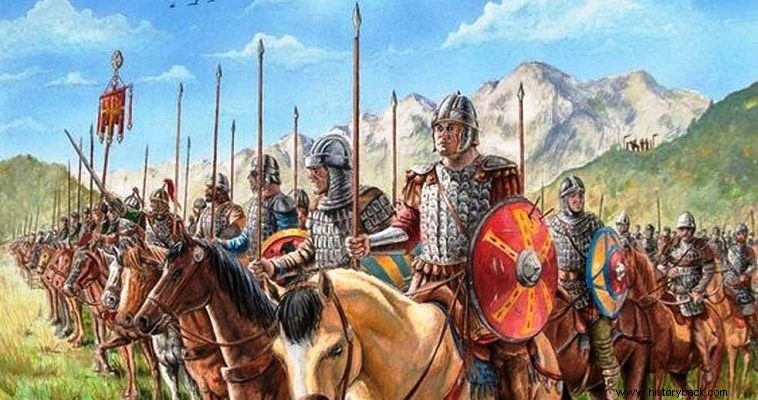
Ancient Satala, present-day Sadak in Turkey, was an important city in Mesopotamia. In 530 AD it was one of the border fortresses between the Byzantine Empire and Sassanid Persia. The two powerful empires were in near constant conflict as the Persians sought to expand into Asia Minor and Armenia.
In the spring of 530 AD the Persians invaded Byzantine territory, but suffered a crushing defeat at the hands of Belisarius at Daras. Nevertheless, Shah Kovad (Kavadis to the Byzantines) ordered his general Mir Miroi (Mermerois in the Byzantine sources) to gather a new army and invade the Byzantine lands. He, indeed, gathered his forces opposite Theodosioupoli (today's Erzerum) and from there moved northwest.
The Byzantine general Sittas, husband of the empress Theodora's sister, when informed of the Persian movements, sent spies to watch the enemies. One of the spies was captured and executed. The second, however, managed to return, carrying important information. So Sittas moved with 15,000 soldiers to face the Persians, although he knew that Mermeroi had at least twice as many soldiers.
The Persians moved towards Satala and camped a short distance from the city walls. But Sita had already reached the city. He then ordered Major-General Dorotheus to remain within the walls, with 14,000 men, ready, at his first signal, to intervene. He himself with 1,000 elite Bucellarian horsemen took up position on a hill near the city, watching the Persians. The next day the Persians reached the walls and deployed around the perimeter in order to besiege the city.
When the Persians had surrounded the city Sittas with his men began to gallop towards the enemy, kicking up as much dust as they could to mislead them as to their numbers. The Persians, thinking that a great force was coming against them, gathered their forces again and moved to face it.
But then Dorotheus rushed against them, from the rear, based on a pre-agreed signal. The Persians initially panicked, but soon realized that they were overwhelmingly outnumbered and, regaining their courage, counterattacked and pressed the Byzantines. The situation was saved by a brave officer, Florentius, who at the head of his battalion rushed upon the Persian general.
Mermerois evaded the attack, but in the melee Florentius seized the banner of the Persian general. Although he was killed, a few moments later, the Persians, seeing their general's banner fall to the ground, assumed that he was killed and fled in disorder, with the Byzantines pursuing and slaughtering them.
The new defeat forced the Persians to ask for negotiations.
